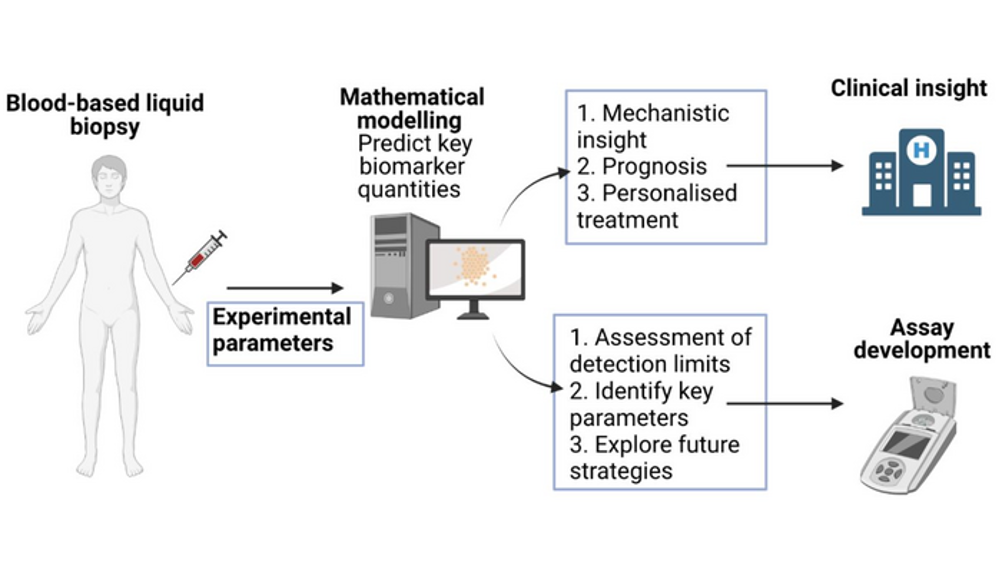The study is part of a wider Bristol-led project to develop a simple brain tumour blood test that could be administered by GPs, a ‘liquid biopsy’ capable of catching cancers at much earlier stages than is currently the norm. Its aim is to detect biomarkers for glioblastomas (GBMs) – also known as grade IV astrocytomas – the most common and aggressive form of brain tumour.
Related content
Published in the Royal Society Interface, the latest work by the Bristol team saw the development of mathematical models to assess the current use of biomarkers in the detection of GBMs and how such biomarker-based strategies can be improved. Pairing the models with experimental data, the researchers found that for the prospective GBM biomarker Glial fibrillary acidic protein (GFAP), lowering the current biomarker threshold could lead to earlier detection of GBMs. The team also used computational modelling to explore the impact of tumour characteristics and patient differences on detection and strategies for improvements.

“Our findings provide the basis for further clinical data on the impact of lowering the current detection threshold for the known biomarker, GFAP, to allow earlier detection of GBMs using blood tests,” said lead author Dr Johanna Blee, research associate in the University of Bristol’s Department of Engineering Mathematics.
“With further experimental data, it may also be possible to quantify tumour and patient heterogeneities and incorporate errors into our models and predictions for blood levels for different tumours. We have also demonstrated how our models can be combined with other diagnostics such as scans to enhance clinical insight with a view to developing more personalised and effective treatments.
“These mathematical models could be used to examine and compare new biomarkers and tests for brain tumours as they emerge. We are hopeful this research will ultimately aid the development of a simple blood test for brain tumours, enabling earlier and more detailed diagnoses.”











Radio wave weapon knocks out drone swarms
Have they tested the effectiveness of the system against the new generation of fibre-optic guided drones now being deployed by both side in the war in...